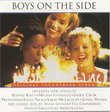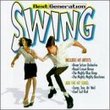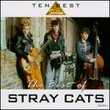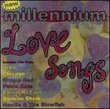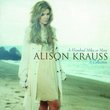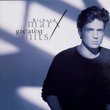| All Artists: Various Artists Title: Old Time Radio: Legends of Comedy Members Wishing: 1 Total Copies: 0 Label: Radio Spirits Release Date: 5/15/2001 Album Type: Soundtrack Genres: Special Interest, Pop, Soundtracks, Broadway & Vocalists Styles: Comedy & Spoken Word, Musicals Number of Discs: 10 SwapaCD Credits: 10 UPCs: 748754446421, 9781570193613 |
Search - Various Artists :: Old Time Radio: Legends of Comedy
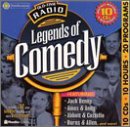 | Various Artists Old Time Radio: Legends of Comedy Genres: Special Interest, Pop, Soundtracks, Broadway & Vocalists
|
Larger Image |
CD DetailsSimilarly Requested CDs
|
CD ReviewsPart of a history of a bygone way of thinking F. Behrens | Keene, NH USA | 05/05/2001 (4 out of 5 stars) "In the past, the Smithsonian collections of Old-Time Radio were packaged in boxes of cassettes or CDs with 3 radio shows on each but with slight abridgments on the CDs to meet the 79-minute limitation of that format. Later, Radio Spirits was good enough to issue new collections on both formats, giving each CD only two complete shows instead of three shortened ones. The latest entry, , holds only 10 cassettes or 10 CDs in the case with two shows on each. (The tapes are very awkwardly packaged, making it difficult to remove them if you are driving.) But though there is less material, there are plenty of laughs to go around. Mind you, there are already available Smithsonian collections with the same performers --"Comedy From the Golden Age of Radio," "Comedy Favorites," and "Showbiz Teams"-- but Radio Spirits has been careful not to duplicate anything from those selected for the earlier offerings. "The Abbott & Costello Program" gives us two 1944 shows, the first of which is highlighted by a Who's-on-first-type verbal mixup over the names of dogs and the second of which has Lou revisit his old school in Patterson, NJ. While "The Amos 'n' Andy Show" might no longer be politically correct, we have two hilarious shows from 1951, the first of which is a gem of the "best laid plans often go astray" variety. The 1940 "Burns and Allen Show" entries are strangely weak. Could it be because they lack the familiar theme song at the start? The "Duffy's Tavern" 1949 samples are very funny, with special thanks to Sheldon Leonard in his usual tough-guy role and Charles Coburn as an aged cardshark. "Fibber McGee and Molly" never seem to change and these 1945 shows are pretty much as weakly plotted but energetically acted as the one offered in the other sets. "The Great Gildersleeve" is notable for being one of the earliest known spin-offs from another show. Unhappily it is just another example of how a man trying to run a family cannot run his own life. Only the women seem to have any sense, at least back in 1947 when these were broadcast. "The Jack Benny Progam" is always good and these two from 1946 are no exception. His confrontation with Fred Allen is predictably side-splitting, as is his confrontation with a surreal radio set.Dagwood Bumstead around, the ultimate bumbling head of the household has to be the lead in "The Life of Riley." Here William Bendix tries to do the right thing in the completely wrong way in both of these 1948 episodes.character of "Lucy" was well established way before she and Desi made television history. Here we have two 1948 airings of "My Favorite Husband" in which Liz's lies in the first and an April Fool's gag in the second naturally and predictably lead to disaster. And finally we have two 1955 examples of "Our Miss Brooks," one of which deals with vacationing with her heart-throb Mr. Boynton and the other with her thinking that Principal Conklin is down on his luck. Again, these very popular shows have a great historical value in their celebration of the middle class family values that permeated the post-war and Eisenhower years and the assumption that Father did not know best--be he black or white, mind you--while the female was in every way superior. Such is the essence of comedy--and if you sometimes wonder why the audience is laughing as you hear these old-time shows, just examine what passes for humor today."
|

 Track Listings (2) - Disc #1
Track Listings (2) - Disc #1